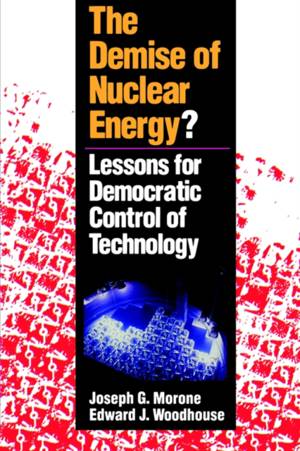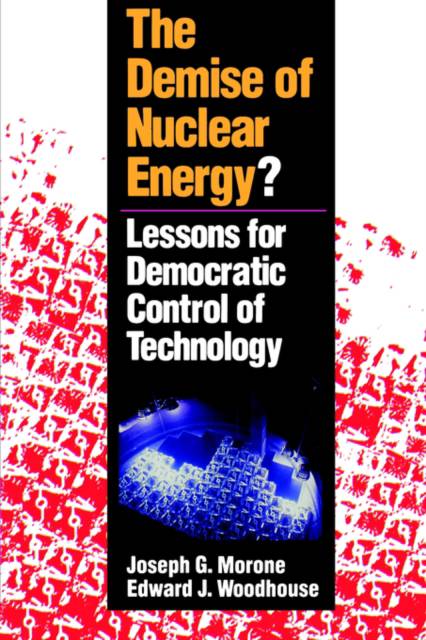
- Afhalen na 1 uur in een winkel met voorraad
- Gratis thuislevering in België vanaf € 30
- Ruim aanbod met 7 miljoen producten
- Afhalen na 1 uur in een winkel met voorraad
- Gratis thuislevering in België vanaf € 30
- Ruim aanbod met 7 miljoen producten
Zoeken
The Demise of Nuclear Energy?
Lessons for Democratic Control of Technology
Joseph G Morone, Edward J Woodhouse
€ 45,95
+ 91 punten
Omschrijving
Three Mile Island, Seabrook, Diablo Canyon: their controversies have come to symbolize the unhappy fate of American nuclear power. Three decades of effort and an investment of several hundred billion dollars have culminated in wide-spread public fear, huge financial losses, an unworkable regulatory system, and a virtual ban on new reactors. How did one of the world's most flexible political and economic systems produce such a technological white elephant? What does this enormous failure reveal about the compatibility of democracy and technology? And what lessons can be learned for future energy policy making?
To answer these questions, Joseph Morone and Edward Woodhouse offer a nonpartisan diagnosis of the decision-making processes that led to the industry's current state. What we think of as nuclear power, they argue, is just one of many technical and organizational forms this energy source could have taken. It was shaped by political and economic choices of the 1950s and 1960s, not by any internal dynamic of the technology. If a few of those choices had been made differently--particularly regarding the scale-up and diffusion of reactors--the nuclear enterprise might have evolved far more acceptably. The ills of the first nuclear era stemmed not from any fundamental incompatibility between technology and democracy, but from a failure of democracy to live up to its own standards of good decision making.
Although many nations have turned away from civilian nuclear power, problems with fossil fuels--particularly climate changes from the greenhouse effect--may lead to reappraisal of the nuclear option. A radically altered form of nuclear power, together with alternative energy sources and intensified conservation, could provide a more acceptable and less environmentally destructive energy future--if we learn from the failures of the first nuclear era.
To answer these questions, Joseph Morone and Edward Woodhouse offer a nonpartisan diagnosis of the decision-making processes that led to the industry's current state. What we think of as nuclear power, they argue, is just one of many technical and organizational forms this energy source could have taken. It was shaped by political and economic choices of the 1950s and 1960s, not by any internal dynamic of the technology. If a few of those choices had been made differently--particularly regarding the scale-up and diffusion of reactors--the nuclear enterprise might have evolved far more acceptably. The ills of the first nuclear era stemmed not from any fundamental incompatibility between technology and democracy, but from a failure of democracy to live up to its own standards of good decision making.
Although many nations have turned away from civilian nuclear power, problems with fossil fuels--particularly climate changes from the greenhouse effect--may lead to reappraisal of the nuclear option. A radically altered form of nuclear power, together with alternative energy sources and intensified conservation, could provide a more acceptable and less environmentally destructive energy future--if we learn from the failures of the first nuclear era.
Specificaties
Betrokkenen
- Auteur(s):
- Uitgeverij:
Inhoud
- Aantal bladzijden:
- 168
- Taal:
- Engels
- Reeks:
Eigenschappen
- Productcode (EAN):
- 9780300044492
- Verschijningsdatum:
- 10/09/1989
- Uitvoering:
- Paperback
- Formaat:
- Trade paperback (VS)
- Afmetingen:
- 156 mm x 234 mm
- Gewicht:
- 290 g

Alleen bij Standaard Boekhandel
+ 91 punten op je klantenkaart van Standaard Boekhandel
Beoordelingen
We publiceren alleen reviews die voldoen aan de voorwaarden voor reviews. Bekijk onze voorwaarden voor reviews.











